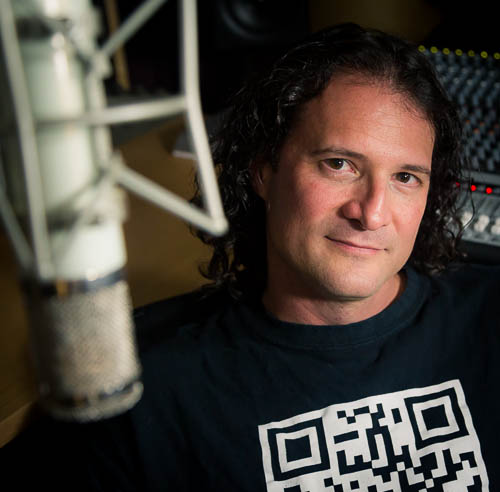|
HOME STUDIO Compressors And Equalizers (EQ) - Know Them, But Don't Always Use Them  By Dan Friedman By Dan Friedman
Audio Engineer, Producer & Voice Talent People new to voice overs are always asking me about effects stacks. If you don't
know what effects stacks (or effects processors) do, or if you
don't know what I'm even talking about, you are in luck.
This article explains the most commonly used effects processors,
and will also help you steer clear of some things you probably should
avoid - for now. WHAT COMPRESSION AND EQUALIZATION DO Audio effects processors - including
compressors and EQ (or equalizers) - are very important elements in audio
production. Compression is used to control dynamics, or the loud and
soft parts of a recording. A compressor controls dynamics by lowering
the output level of louder parts and raising the level of softer parts. This produces overall output levels that are more evenly balanced throughout the compressed portion of audio. An equalizer is used to adjust the
tones, or frequencies, within a sound. EQ can be used in several ways to enhance or alter certain tones by increasing or decreasing the level of specific frequencies to create an overall sound that is more pleasant. This is all very cool! However, if you
are just getting started in voice overs - and typically even if
you've been doing this for awhile - these effects are not really
something you need to be overly concerned with - at least, not in the
beginning. ANSWERS TO SOME FAQS What should you do?
As you are working on developing your voice over career, your number one focus should always be on your delivery. DO YOU BELIEVE IN MAGIC? The magic is in your delivery. When used properly or creatively,
processing can make a good recording sound great. But a weak
performance will always sound like a weak performance no matter how
much or how little processing is used. It is very easy for people to get
caught up in the magic and mystery of the tools, rather than focusing
on where the magic truly lies: in the delivery. Simply stated, compression and EQ will not turn a weak delivery into a magical one. Speaking of deliveries, different
scripts require different interpretations, enthusiasm, loudness and
energy levels. How loud or soft certain elements are in your delivery
are not the same for every script. Therefore, you cannot simply go to
the same presets for every script you read and "set it and forget it." One size does not fit all. CREATIVITY AND CORRECTION Creativity or correction? What would be more fun for you? Also, as a new voice talent, it is rare that you will be called upon to do a full production.
Most often you will be sending your audio elsewhere, where it will be
edited, manipulated and mixed alongside music, sound effects or other
voices. The mix engineer cannot undo this type of processing. If you were to add processing incorrectly or inappropriately, you may have created a very frustrating situation that could make a mix engineer very unhappy. A new unprocessed recording could be the only solution to the
problem, and there are no guarantees that the client will come back to
you to get it. THE TWO DIFFERENT USES Generally, compression and equalization
are used in two ways: creatively or correctively. If you've chosen your equipment well, have a finely tuned acoustic environment and are always working on your technique, these processing tools can be used creatively as opposed to correctively. Rather than using these
processors in an attempt to fix difficult acoustic or technical
problems, the tools can be used to place your voice properly in a mix or
to enable you to sound like you - only better! As you can imagine,
creativity is far more enjoyable for the mix engineer. Above all, remember that no
matter what level you are at in your career, the most important effect
to the voice over talent is the effect your delivery has on the
listener. ------------------- ABOUT DAN
Dan Friedman is a voice talent
who began as an audio engineer in 1994, working with live sound and then
in radio and recording studios. He has been a producer with ProComm Voices
for over 10 years, and since 2005, a voice talent with a growing list
of clients including radio and television campaigns. His
comprehensive book, Sound Advice - Voiceover From An Audio Engineer's Perspective, provides an excellent foundation for understanding voice over audio and equipment, including more about compression and EQ.
Email: dan@sound4vo.com Web: www.sound4vo.com
Web: www.procommvoices.com Sound Advice book: Click Here |
As of the NEW website launch, 03/22/2012



.png)






I wish you lived next door to me.
Alan Sklar
My point is that my ear is NOT going to be the one that should make all the adjustments to the audio. New to VO or at it for a while, it is important to concentrate on your craft and art. Not many of us should do much to the sound. Just be good at what you do.
Thanks for the good information.
Lynn
Randye